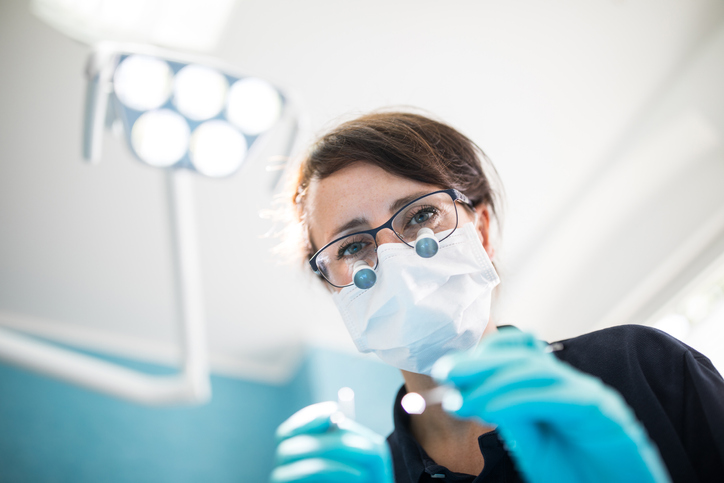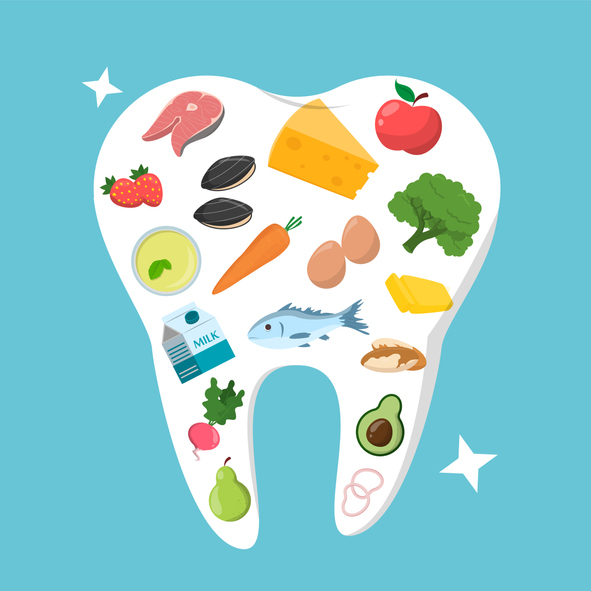You May Want to Delay the Dentist, But You Can Still Be Proactive About Oral Health Care

By Joy Stephenson-Laws, J.D., Founder
If you are one of those people who is good about staying on top of your routine dental checkups and cleanings, you might be thinking that now is a good time to get to the dentist despite the threat of COVID-19.
Many dental offices are now open across the country and taking extra precautions such as temperature checks. And what better way to feel somewhat normal again than by taking care of your teeth (even though you may have to hide them behind a mask)?
But the World Health Organization, (WHO), is recommending that people delay routine dental checkups.
“The World Health Organization said Tuesday that routine, non-essential dental work should be delayed until COVID-19 transmission rates drop sufficiently, cautioning against procedures that produce aerosol spray from patients' mouths,” according to this recent Medical Xpress report.
“Aerosol-generating procedures (AGPs) include dental cleaning with an ultrasonic scaler and polishing, work with high or low-speed hand-pieces, surgical tooth extraction and implant placement.”

Although there are still a lot of unknowns regarding aerosol (tiny particles or droplets in the air) transmission of the coronavirus, according to WHO, “Some medical procedures can produce very small droplets (called aerosolized droplet nuclei or aerosols) that are able to stay suspended in the air for longer periods of time. When such medical procedures are conducted on people infected with COVID-19 in health facilities, these aerosols can contain the COVID-19 virus. These aerosols may potentially be inhaled by others if they are not wearing appropriate personal protective equipment.”
This is why they are highly recommending that non-essential oral health care be put on hold. Of course if you are having a dental emergency, by all means see a dentist.
Nevertheless, we can still be proactive about oral health at home.Don’t underestimate what you can do at home to help keep your teeth healthy even though you are not able to go to the dentist when you want to.
Obviously, it is important to brush and floss your teeth, but you really want to care for your mouth as if it is a sensitive landscape (like your gut microbiome). And you cannot have healthy teeth without healthy gums.
Just like your intestines, your mouth is home to different types of bacteria. When all the types of bacteria are in balance, your gums may be protected from disease-causing bacteria. However, disturbing the bacteria balance provides an opening for disease-causing bacteria and other microorganisms to invade the gums. This increase in disease-causing bacteria generally causes your body’s immune system, and the white blood cells that get rid of them, to produce substances that not only destroy the bacteria but also damage your gum tissue.
Activities like smoking, taking certain medications (like antibiotics), poor oral hygiene and poor diet may disturb the balance of bacteria in our mouths and enhance the activity of these disease-causing bacteria that may lead to gum disease.
Saliva is also key.
Saliva, which helps protect you from dry mouth, reportedly controls bacteria overgrowth that may cause oral disease.
Some things you can do to increase your mouth’s production of saliva and better protect your gums include:
- Making sure to drink at least eight glasses of water a day
- Using a moisturizing mouth spray
- Eating snacks, such as celery and cucumbers, that help hydrate you
- Limiting how much coffee, tea, sugar-sweetened beverages and alcohol you drink
- Avoiding mouthwashes with alcohol
- Using a periobiotic toothpaste. It is a specialized toothpaste, which reportedly has a probiotic that competes with the unhealthy strains of oral bacteria and helps maintain healthy gums.
You should also make sure that your gums are getting the nutrients they need, and in the right amounts, to stay healthy. Many studies have shown that a balanced diet plays an essential role in maintaining periodontal health. If your diet is rich in fresh fruits and vegetables, you’re probably getting most of the nutrients your gums need. Some of these nutrients include calcium, phosphorus, vitamins C and D, iron and zinc.
At the end of the day, it’s a personal choice on whether you go to the dentist or not for non-essential oral health care, but I highly recommend weighing the risks, especially if you are at an increased risk for developing complications from COVID-19.
Whatever you decide, always take care of your immune system.
Enjoy your healthy life!
Disclaimer: This article is not intended to provide medical advice. Please consult with your doctor or another competent healthcare practitioner to get specific medical advice for your situation.
The pH professional health care team includes recognized experts from a variety of health care and related disciplines, including physicians, attorneys, nutritionists, nurses and certified fitness instructors. This team also includes the members of the pH Medical Advisory Board, which constantly monitors all pH programs, products and services. To learn more about the pH Medical Advisory Board, click here.







